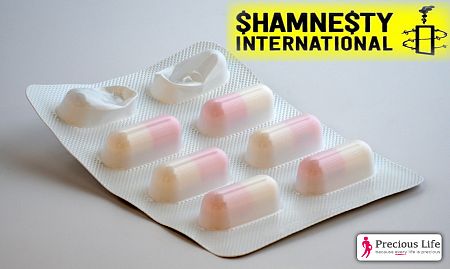Press Release: Precious Life blast Amnesty International's call for DIY home abortions in NI
Northern Ireland's leading pro-life group Precious Life blasted have blasted Amnesty International's call for dangerous DIY home abortions in Northern Ireland.
Seemingly unsatisfied with the imposition on Northern Ireland of one of the most extreme abortion laws in the world, Amnesty spokesperson Grainne Teggart claimed that the lack of DIY home abortions was ‘dangerous and unfair.’
Bernadette Smyth of Precious Life blasted the claims, stating, “This is yet another attack on innocent human life from Amnesty International. What was once a legitimate human rights organisation is now primarily a campaign group for abortion at all costs, including during a national health emergency.”
She continued, “It is absurd to claim that without these deadly home abortions, women and girls are in danger or at risk. There is nothing more dangerous than abortion, which violently takes the life of an unborn baby 100 percent of the time. Women and girls are also much safer without abortion pills.
"At least 24 women worldwide have died as a result of taking the abortion pill, while others have been left seriously injured through adverse effects such as haemorrhaging and uterine perforation. How can we possibly claim these pills are safe?”
The pro-life group also said that Amnesty has abandoned its original mission of safeguarding human rights in pursuit of an extreme and cruel abortion agenda.
“Amnesty was founded to highlight and confront human rights abuses and to stand up for citizens who were suffering under unjust regimes. It is beyond disgraceful that Amnesty International are betraying its own founding mission through its startling infatuation with abortion, even at a time when the international focus is on preserving life.
“Amnesty now seems to spend the vast majority of its time attacking the rights of the most defenceless and vulnerable people of all – unborn babies. It’s an assault to those who seek to defend real human rights and protect the vulnerable,” Ms Smyth concluded.
ENDS


